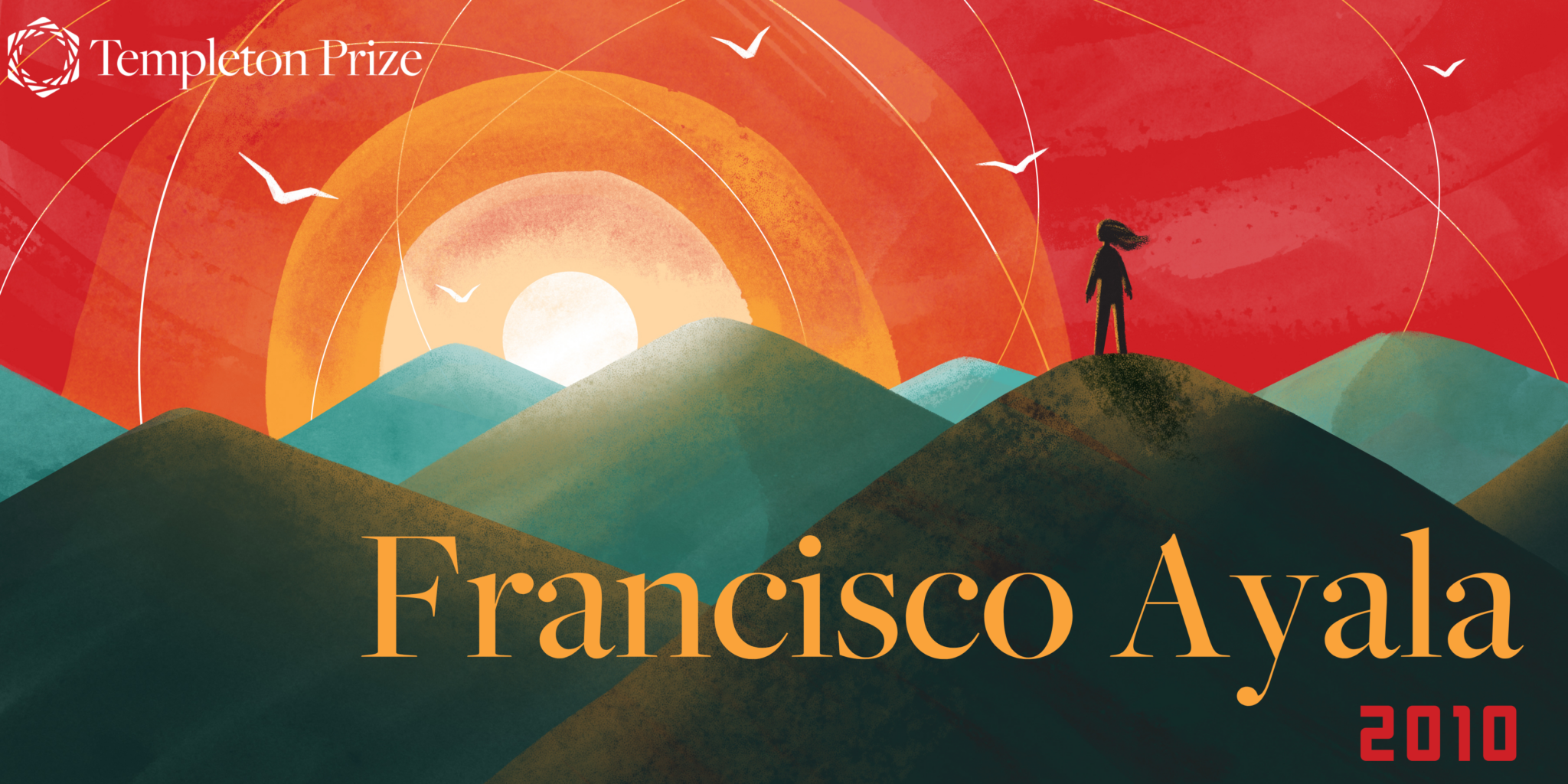Evolutionary geneticist and molecular biologist Francisco J. Ayala was awarded the Templeton Prize in 2010 for his efforts to advocate clear separation—and mutual respect—between the domains of science and religion. Even as he warned against religion’s intrusion into science, Ayala, a former Dominican priest, also championed faith as a unique and important window to understanding matters of purpose, values, and the meaning of life.
A naturalized American who moved from Spain to New York in 1961, his groundbreaking research into parasitic protozoa may lead to cures for malaria and other diseases. He led a scientific forensics team that determined malaria was passed from chimpanzees to humans, perhaps through a single mosquito, between 5,000 and 6,000 years ago. Ayala also explored different expressions of evolution — some accelerated and some static — and developed a new genetic species of the common fruit fly. He wrote or co-authored more than 25 books, and was awarded the National Medal of Science by George W. Bush in 2001.
Ayala was a longtime faculty member at the University of California, Irvine, but resigned from his position in 2018 after sexual-harassment allegations. He died on March 7, 2023 at the age of 88 due to complications from a fall.
“I contend that science and religious beliefs need not be in contradiction. If they are properly understood, they cannot be in contradiction because science and religion concern different matters. Science concerns the processes that account for the natural world: how the planets move, the composition of matter and space, the origin and function of organisms. Religion concerns the meaning and purpose of the world and of human life, the proper relation of people to their Creator and to each other, the moral values that inspire and govern people’s lives. It is only when assertions are made beyond their legitimate boundaries that religion and science, and evolutionary theory in particular, appear to be antithetical. Science and religion are like two different windows through which we look at the world. We see different aspects of reality through them, but the world at which we look is only one and the same.”
—Francisco J. Ayala
